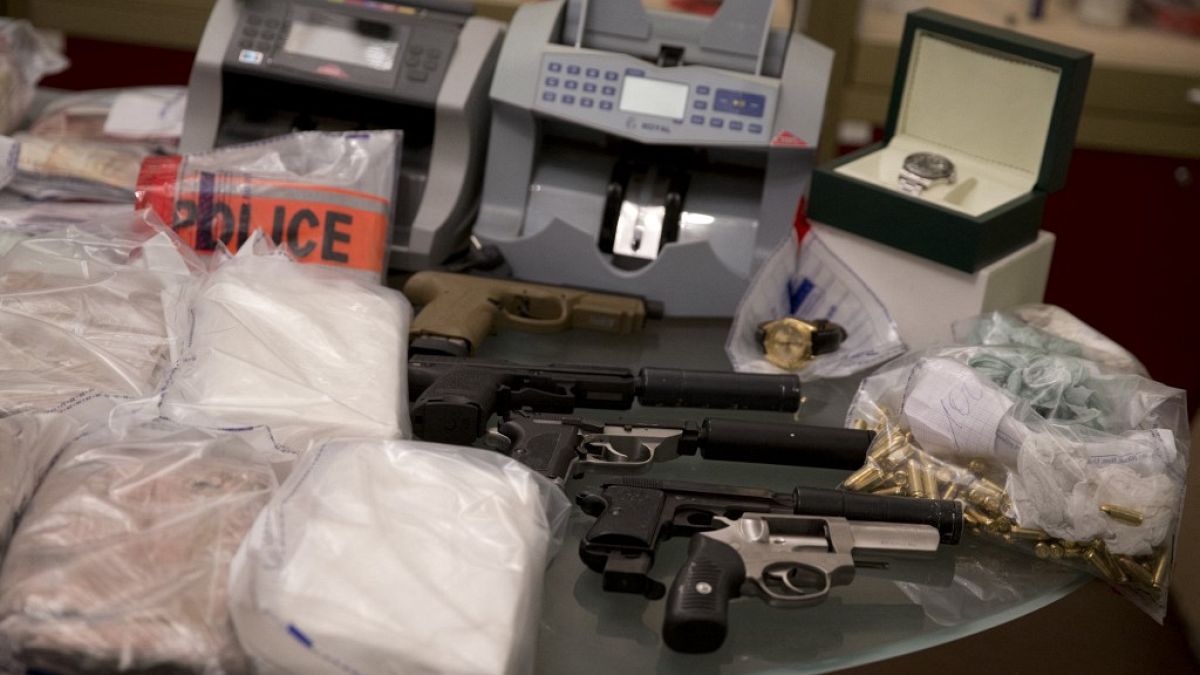The EU's law enforcement agency released a report on organised crime Monday highlighting the extent of the problem on the continent.
The threat posed by organised crime in Europe has never been higher, according to the EU’s law enforcement agency.
A new report published Monday by Europol says the pandemic is likely to fuel gang activity on the continent for years to come, in large part due to an unprecedented influx of cocaine.
The organisation's director Catherine De Bolle told AFP that Europe is at a "breaking point".
Close to 40 per cent of criminal networks are engaged in drug trafficking, making it the largest illicit business in the EU.
And the global pandemic is now offering even more opportunities for illegal activities.
"Criminals were already quick to adapt illegal products, modus operandi and narratives to the COVID-19 pandemic. In this way, they exploited the fear and the anxieties of Europeans and they profited from the scarcity of some vital goods during the pandemic," De Bolle told reporters on Monday.
Europol, which has its headquarters in the Hague, lays out in its report how gangs have capitalised on the pandemic, offering fake coronavirus vaccines, as well as false self-testing kits.
It also says that criminal networks will probably seek to infiltrate legal businesses that have become increasingly vulnerable due to COVID-19.
But the task at hand for the law enforcement agency and member states is a daunting one.
The report describes the difficulty in tackling organised crime due to its transnational structure, with 70 per cent of networks active in at least three different countries.
Europol also warns European citizens against online and offline frauds as well as property crimes, with an estimated one million home burglaries on the continent every year.
Another worrying trend is the increasing use of violence by criminal networks, which resort to corruption, torture and complicated business structures to launder huge sums of money.
The European Commissioner for Home Affairs, Ylva Johansson told reporters Monday the extent of the problem: "In one year, criminals made almost €140bn in criminal money in the European Union. 1 per cent of EU GDP and more than the GDP of some of our member states. Money that criminals use to pay for middlemen, strawmen, and hitmen. Money that we need for hospitals, vaccines, and recovery."
Governments are now being called upon to step up policy measures, judicial cooperation and information sharing if they are to effectively combat organised crime.


